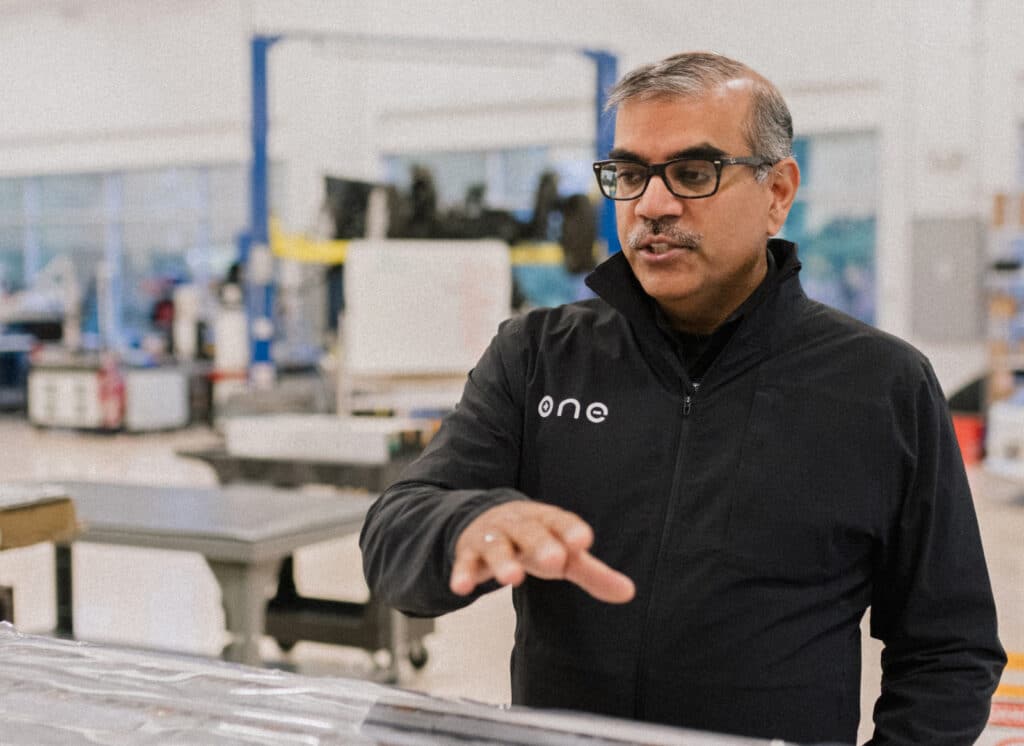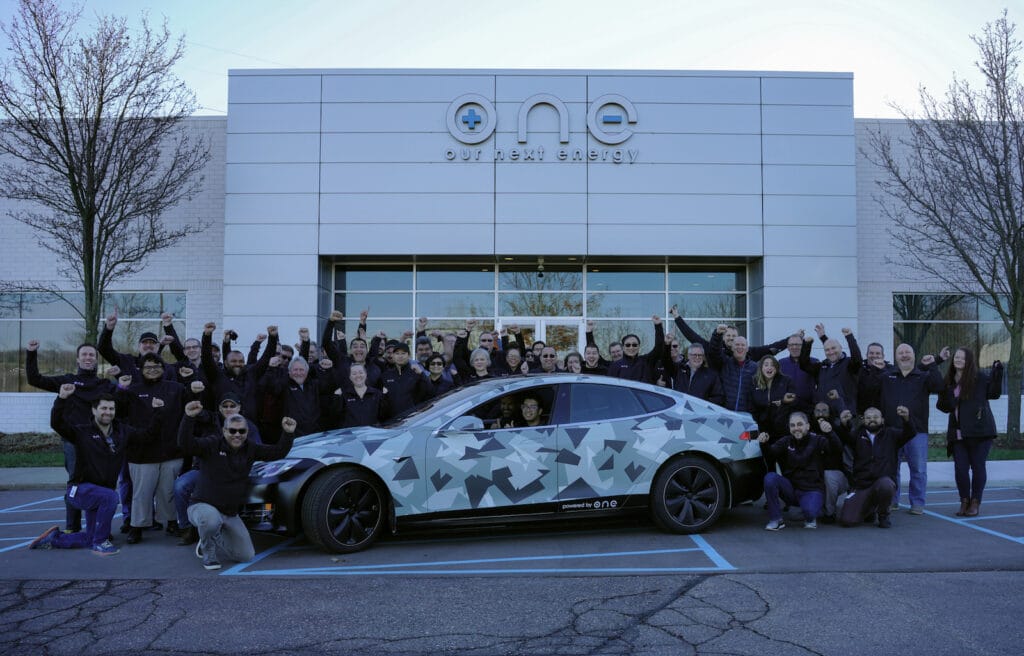Michigan-based startup battery maker Our Next Energy Inc. (ONE), announced a $1.6 billion investment in a new battery cell manufacturing plant in its home state. The factory is to be called ONE Circle, and it is located in Van Buren Township, just outside Detroit.

The recently constructed facility is expected to create 2,112 new jobs when operating at its full capacity of 20 GWh annually, equivalent to 200,000 electric vehicle battery packs. ONE expects that capacity to be achieved by the end of 2027.
ONE’s been making headlines in recent months for producing batteries with extraordinary range. ONE takes an unusual approach, combining two different types of batteries in its pack. One uses cobalt and nickel-free cathodes, offering advantages such as lower costs. A second battery design stores significantly more energy and effectively recharges the primary pack as a vehicle is being driven.
Using this setup, the company managed to squeeze 752 miles out of the battery on a single run using a Tesla Model S. The company claims it’s gotten 882 miles out of its battery driving 55 mph on a dynamometer.
Long term plans
ONE’s Lithium Iron Phosphate (LFP) battery technology is intended as an alternative to lithium-ion based cells. ONE’s Michigan factory is the first step in developing North American material supply chains to commercialize LFP technologies that do not sacrifice EV range.

By 2028, ONE Circle expects to drive down carbon emissions by 45% by onshoring its supply chain and integrating materials refinement with its Massachusetts-based partner 6K Energy into its manufacturing processes.
The company also plans on leveraging renewable energy for 50% of its power needs. ONE is partnering with a well-known but as yet unnamed North American battery recycler to be able to integrate recycled materials back into its LFP and Anode-Free cells.
Michigan come back
The state of Michigan had lagged in EV battery manufacturing, but now seems to be catching up — especially in light of the new rules regarding EV tax credit. The rebound started with an announcement that GM would site one of its Ultium battery manufacturing centers near Lansing. More recently, Chinese battery maker Gotion announced a battery component manufacturing plant would be built in the town of Big Rapids, Michigan.
“ONE is thrilled to select Michigan for our first cell factory, due to the state’s unique combination of battery talent, proximity to material supply and access to low-cost energy,” said Mujeeb Ijaz, founder and CEO of ONE.
Among the attractive prospects for this factory is ONE’s inclusive workforce development program. The program will begin in 2024 and will retrain Michigan residents for the high-skilled green manufacturing jobs at ONE Circle.
The company will partner with Detroit-based Focus: HOPE and Walker-Miller Energy Services to help transition Michigan’s talented automotive workforce with emphasis on equitable economic development. ONE has stated that the company will offer an average annual salary of $67,456, as well as industry-leading benefits and a comprehensive training program.
Provisions in the recently passed Inflation Reduction Act creating tax credit requirements to use American-made batteries are making U.S. locations more attractive. Further, the ONE factory is supported by a $215 million state grant. It may be a very good investment. Over the course of 20 years, ONE Circle is expected to generate $967 million in state taxes and more than $13 billion in new personal income for its employees.








A revolutionary idea with actual test data.
We are really going to get rid of the best farmland in mi for a battery production.. in one of the worlds biggest freshwaters? Saying your green means nothing…. Let’s be back na biggest trash recycler. That doesn’t pollute water either..
I heard its owned by the Chinese. Only Chinese people will be able to work at the battery factory.
Brad, that’s absurd. It’s not uncommon to see foreign nationals brought in when an international company sets up operations in the U.S. That has happened at the various Japanese assembly plants, for example. But that’s usually in the early stages and employment is normally localized quite rapidly. (American companies frequently do the same when setting up shop abroad, as GM did, for example, when first opening an assembly operation in Shanghai.)
How many foreign nationals will start out at this plant is unclear, but it will be a modest number, at most. And, in the relative near-term, virtually all jobs will be localized. Comments to the otherwise are just part of a fake news campaign.
Paul E.